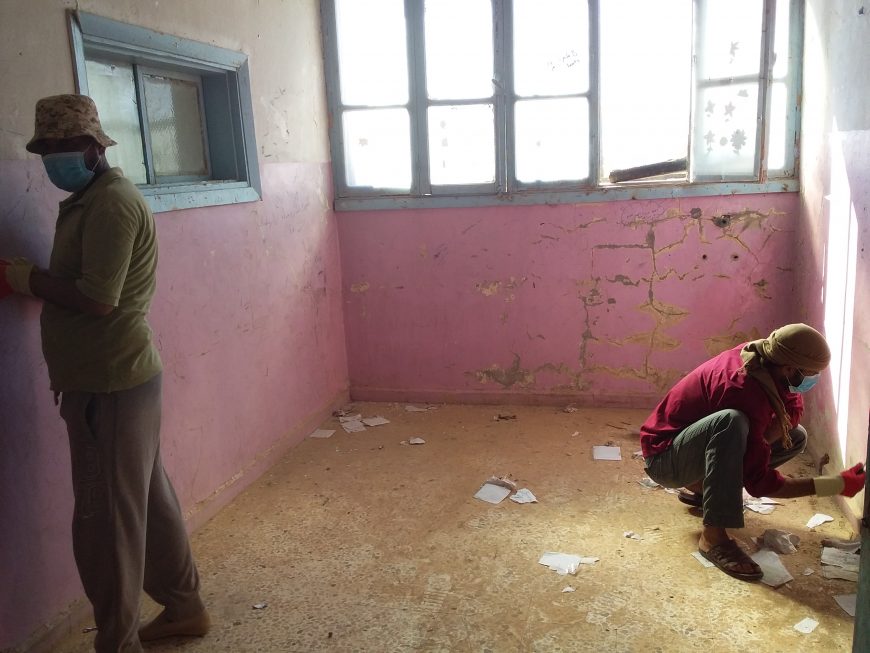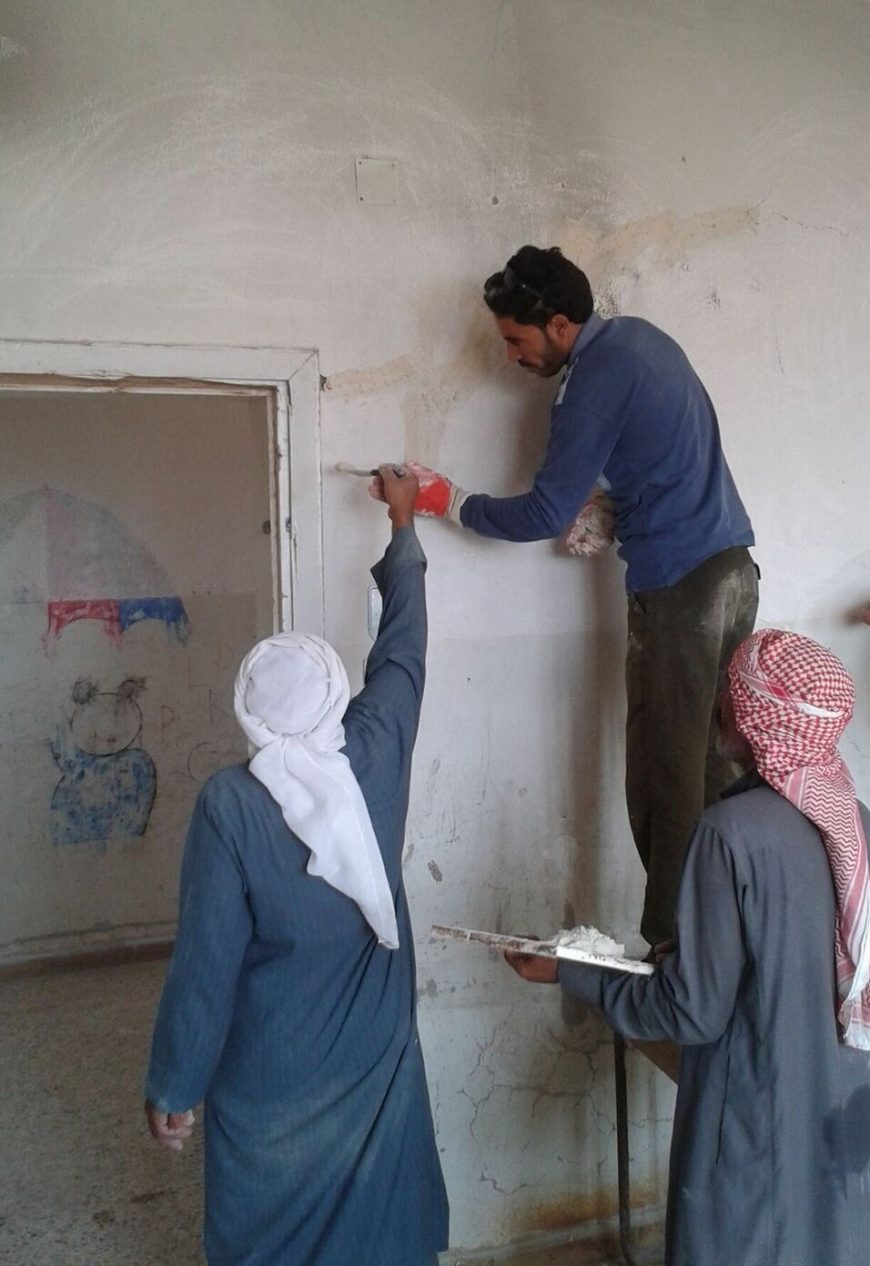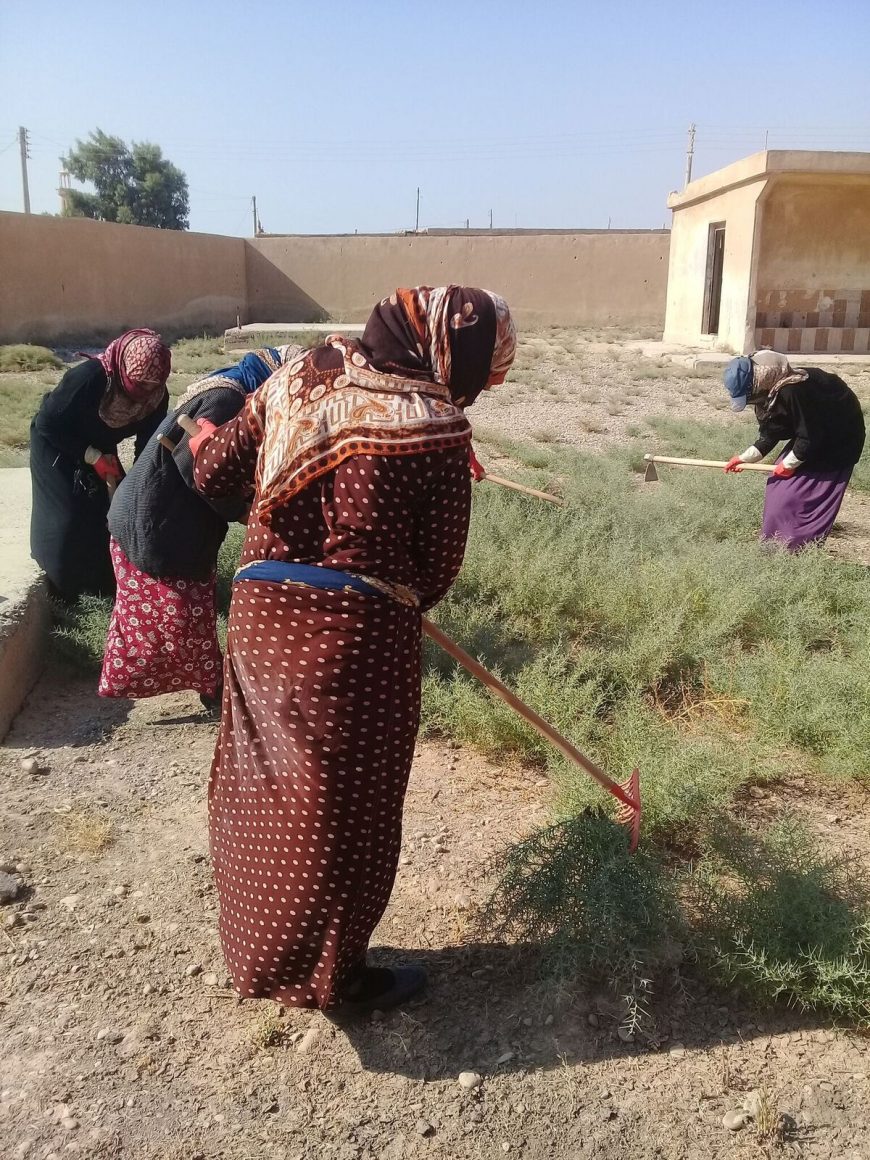The prolonged conflict in Syria and the resulting humanitarian crisis have long-lasting effects on the lives of Syrians. The crisis notably highly affected the labor market, with millions of people been pushed into unemployment. Families thus suffer from a lack of income, while the prices of food and goods on the market are increasing.
ACTED spoke to Ibrahim, a 46 year old Syrian who recently took part in an ACTED’s ‘Cash for Work’ scheme, to explore how such short-term employment opportunities are helping Syrian families to meet their most immediate and pressing needs.
A lasting conflict affecting the vulnerability of Syrian communities
For the past twenty years, since the death of his father, Ibrahim was the only breadwinner in the family, thus responsible for providing for his mother and his disabled brother. In Ibrahim’s governorate, over 400,000 people are in need for assistance, and over 150 000 people are displaced and unable to return to their homes.
The combination of droughts and conflict has undermined Syrian agriculture, creating serious food shortages in the region and contributing to rising food prices. Agriculture was also a significant employer, with approximately 20% of working Syrians dependent on the sector for their incomes.
This lack of employment opportunities forced many families to adopt emergency harmful strategies, such as skipping meals or limiting the portions, delaying to seek necessary medical care or even borrowing money from neighbors.

Supporting vulnerable households through income generating activities
In 2019, Ibrahim took part in two months of Cash for Work, during which he carried out essential public works in his community. These included: cleaning, painting and small rehabilitation works of schools and public buildings.
Cash-for-work is as an effective early recovery approach to support vulnerable families who struggle to meet their immediate needs. By providing short-term employment opportunities, Cash-for-work projects allow participants to generate a resilience income through which they are able to access basic needs such as food and medicine. It therefore contributes to immediately support the food security of vulnerable people, and improves the well-being of the community by rehabilitating or improving communal infrastructures.
With the income he received from the two months of work, Ibrahim was able to fulfil his household’s immediate needs, such as food and medicine. Simultaneously, the type of work performed contributed to developing his skills and encouraged him to build his capacities, in anticipation of more sustainable income generation opportunities in the future.

The work with ACTED gave me the opportunity to learn more about painting and plastering and I had the chance to be beneficial for society. I generated an income [through which] I could provide for my family.
Encouraging social cohesion within communities
Crucial to the effectiveness of such schemes is the prior involvement of the targeted communities in deciding the priorities for local maintenance and rehabilitation. ACTED ensured that the most vulnerable groups were included in planning consultations and in doing so, achieved a rate of female participation of 39%.
The scheme also contributed to social cohesion in the area, given its inclusion of both internally displaced persons and those who were hosting these populations. Through working together on improving facilities used across the community, the action contributed to an improved sense of social cohesion among participants and their families.
